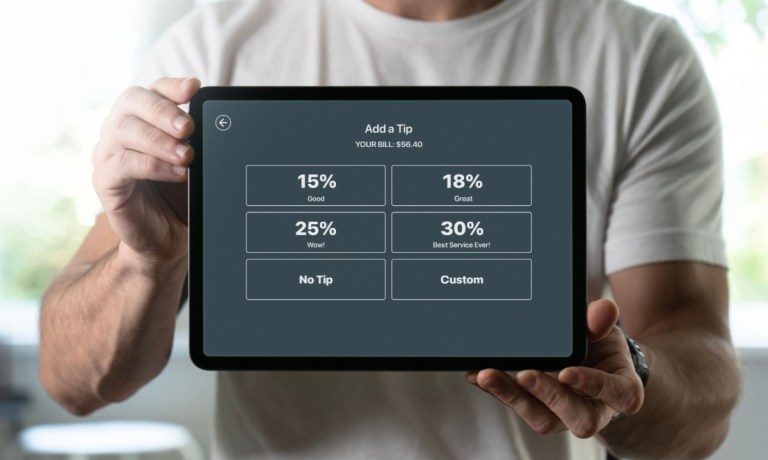Instant Payments Fuel Tipping’s Digital Evolution

From restaurants to rideshare platforms and hospitality, the rise of digital tipping is reshaping how consumers express gratitude for service. This shift toward digital gratuity represents more than just convenience — it’s a reflection of broader societal changes, impacting both employee retention and transactional consumer experiences.
The recent debut of a digital tipping feature for delivery drivers by software company Cigo exemplifies this trend.
“A digital tipping system can be a win-win for drivers and businesses,” the company said in a Monday (April 15) news release, citing a research study indicating that digital tipping results in higher gratuities, with 65% of respondents stating they tip at least 11% more digitally than with cash.
“On the business side, 70% of respondents noted that the quality of service they receive directly influences the tip they give — meaning that organizations can use tipping to increase their profits since it incentivizes drivers to enhance their overall performance,” the company added.
Similarly, Twenty Four Seven Hotels, a third-party hospitality management company, has embraced this trend by partnering with Shiny, a digital tipping platform, to provide services for over 450 associates across its 30-hotel portfolio.
David Wani, CEO of Twenty Four Seven Hotels, emphasized the importance of recognizing employee efforts in an April 9 LinkedIn post announcing the collaboration, particularly amid “one of the tightest labor markets in industry history and ever-rising costs.”
In fact, the implementation of digital, instant payouts for hospitality staff has been shown to enhance morale and job satisfaction in the fast-paced and competitive service industry, addressing long-standing challenges in staff retention and ultimately leading to higher retention rates.
As Matt Tuchband, CEO of mobile tipping platform TipQwik, said in ‘Tap and Tip: Travel and Hospitality Embrace Digital and Instant Payments,’ a joint PYMNTS Intelligence and Ingo Payments research study, “the ability to tip with a smartphone throughout a property is important for two reasons. [First, it can reduce] turnover through retention [of] staff who normally do not get tips included on a bill, such as housekeeping, porters, etc. [Second,] it provides a simple option for guests to show their appreciation at any time without fumbling for cash.”
Brian Hassan, co-CEO of instant cashless tip payouts platform Kickfin, also discussed the benefits of instant digital tip access and payouts in an interview with PYMNTS last year, noting that it could have a similar transformative impact as early wage access did when it first emerged several years ago.
Notably, this innovation has narrowed the gap between small- to medium-sized businesses (SMBs) in the service sector and industry giants like Uber and Lyft, addressing the crucial need for attracting hard-to-find workers in this service segment, Hassan explained.
Moreover, as digital tipping becomes increasingly common, even in unconventional venues such as fast-food drive-thrus and self-checkout kiosks, concerns about tipflation have emerged.
However, findings from PYMNTS Intelligence research indicate that consumers tend to offer more generous tips when prompted by a digital screen, rather than using traditional tip jars, signaling the benefits of digital tipping solutions in enhancing gratuity practices.